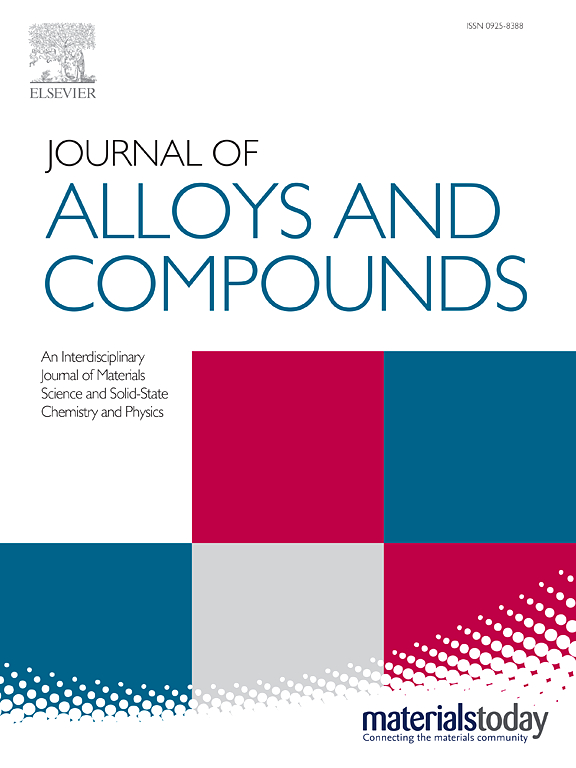基于非晶氮化硼薄膜的自供电太阳能紫外探测器
IF 5.8
2区 材料科学
Q2 CHEMISTRY, PHYSICAL
引用次数: 0
摘要
氮化硼(BN)因其优异的热导率、高击穿场强、高吸收系数和强抗辐照性能,一直是紫外探测领域的热门材料。然而,其大规模单晶薄膜的制备条件十分苛刻,限制了其器件的快速发展。在这项工作中,采用磁控溅射技术在相对较低的温度下沉积了非晶 BN 薄膜。在薄膜的基础上,通过欧姆接触和肖特基接触分别制作了非对称肖特基结日光盲紫外探测器。在 20 V 偏置和 81.1 μW/cm2 紫外线照射下,探测器的最大响应率和探测率分别为 6.4 μA/W 和 2.5 × 1010 Jones。更重要的是,由于其内置电场的存在,所制备的非对称肖特基结探测器还实现了稳定的自供电特性,并且在快速热退火后性能进一步提高。制备的 BN 非对称肖特基结探测器无需外接电源即可工作,具有简化设备结构、可无线工作等诸多优点。这项工作将为下一代独立可持续探测器的设计提供新的参考。本文章由计算机程序翻译,如有差异,请以英文原文为准。
Self-Powered Solar-Blind Ultraviolet Detectors Based on the Amorphous Boron Nitride Films
Boron nitride (BN) has been a popular material in the field of ultraviolet detection because of its excellent thermal conductivity, high breakdown field strength, high absorption coefficient, and strong resistance to radiation. However, the harsh preparation conditions of its large-scale single crystal films limit the rapid development of its devices. In this work, amorphous BN films were deposited by the magnetron sputtering technique at a relatively low temperatures. On the basis of the films, the asymmetric Schottky junction solar-blind ultraviolet detectors were fabricated by the Ohmic and Schottky contact, respectively. The maximum responsivity and detectivity of the detectors are 6.4 μA/W and 2.5 × 1010 Jones under 20 V bias and 81.1 μW/cm2 ultraviolet light irradiation, respectively. More importantly, the fabricated asymmetric Schottky junction detector also achieves the stable self-powered characteristics due to the presence of its built-in electric field, and the performances are further improved after the rapid thermal annealing. The prepared BN asymmetric Schottky junction detector can operate without the need for the external power supply, which have many advantages such as simplifying the equipment structure and being able to operate in wireless. This work will provide a new reference for the design of the next generation of independent sustainable detectors.
求助全文
通过发布文献求助,成功后即可免费获取论文全文。
去求助
来源期刊

Journal of Alloys and Compounds
工程技术-材料科学:综合
CiteScore
11.10
自引率
14.50%
发文量
5146
审稿时长
67 days
期刊介绍:
The Journal of Alloys and Compounds is intended to serve as an international medium for the publication of work on solid materials comprising compounds as well as alloys. Its great strength lies in the diversity of discipline which it encompasses, drawing together results from materials science, solid-state chemistry and physics.
 求助内容:
求助内容: 应助结果提醒方式:
应助结果提醒方式:


